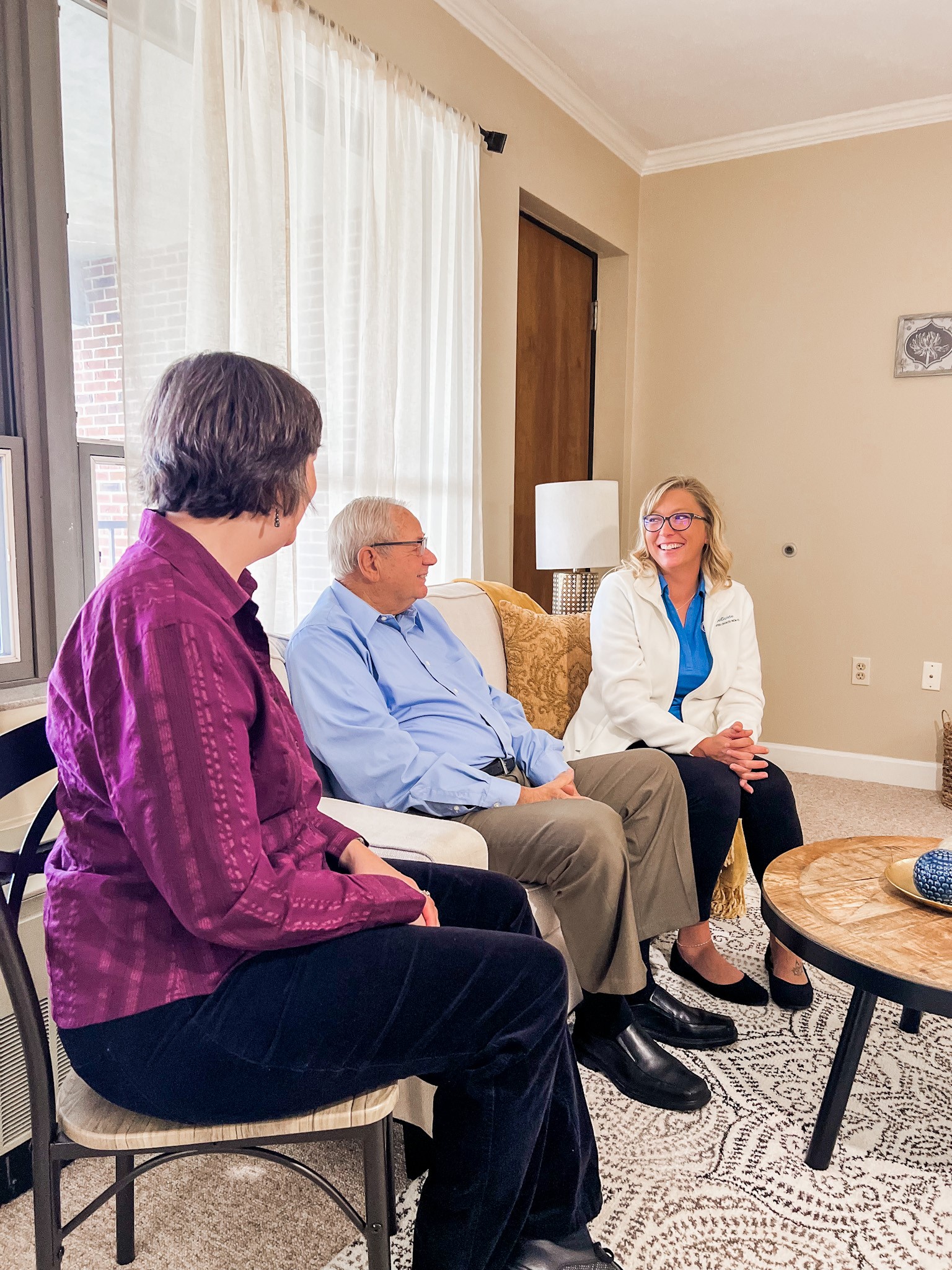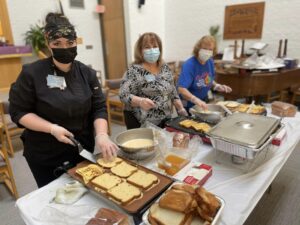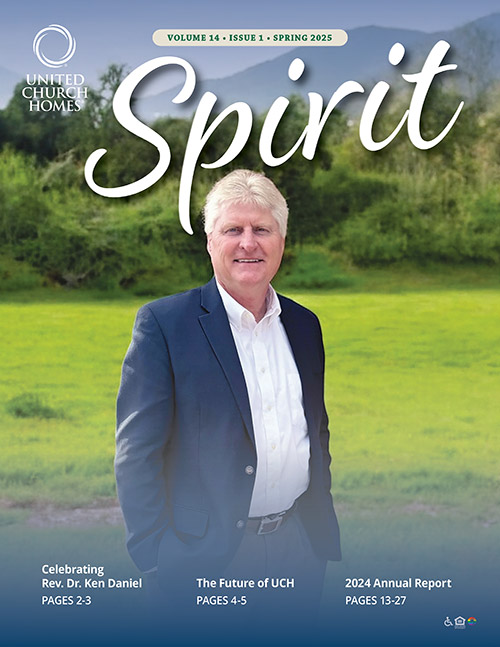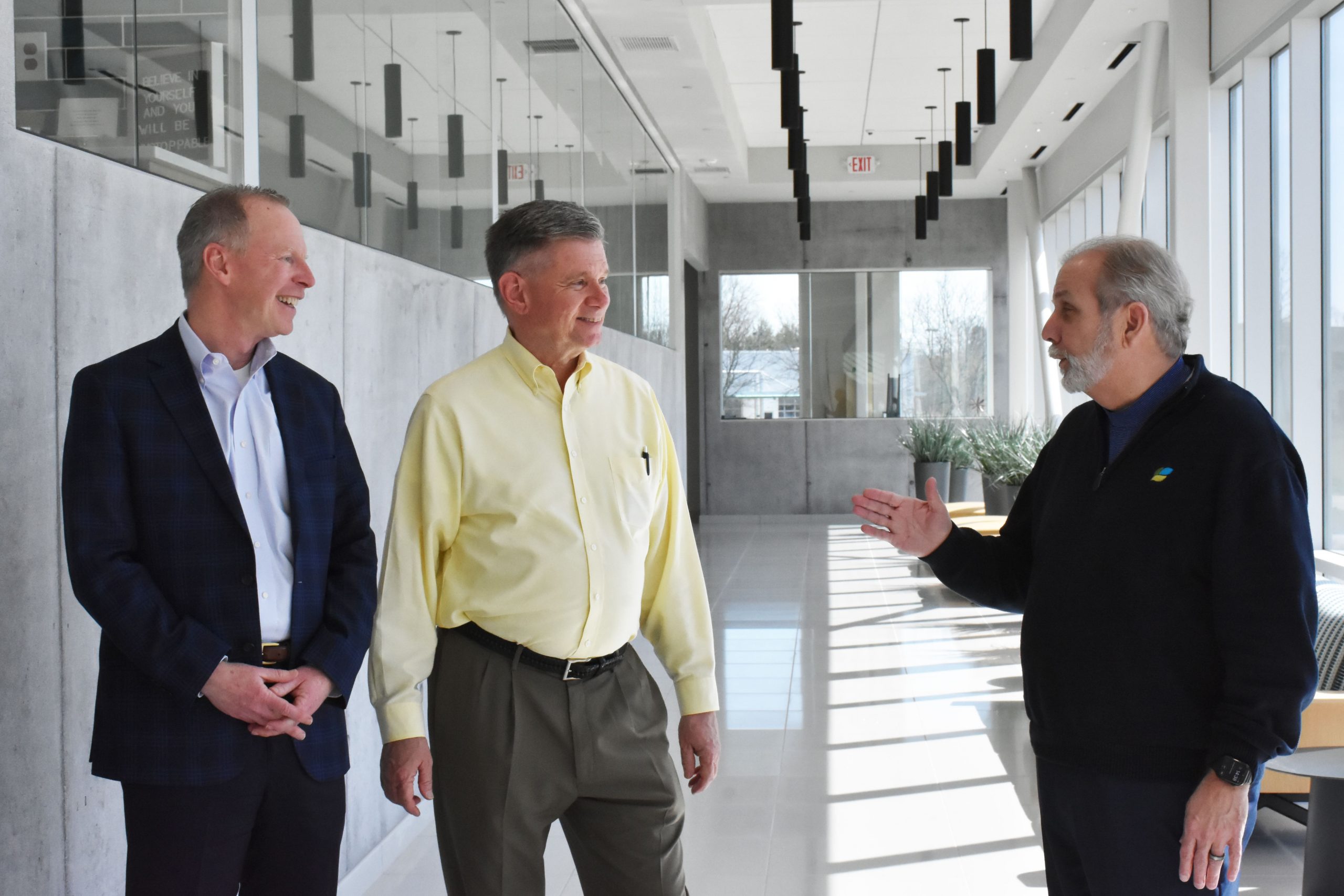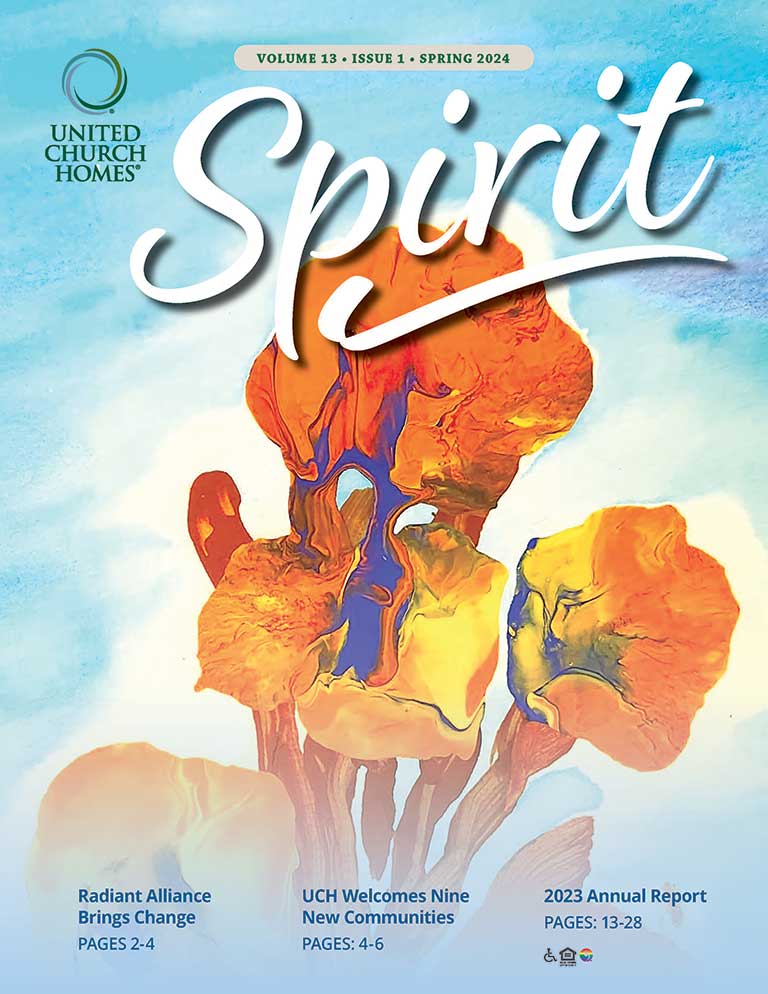United Church Homes’ (UCH) mission – to transform aging by building a culture of community, wholeness, and peace – focuses on residents, as does its vision of abundant life. But the organization’s senior leaders are also committed to creating an abundant culture for staff who work in its 80-plus communities and central office.
Scott Slutz, who was recently promoted to senior executive vice president of human resources and chief culture officer, brings a different and very important perspective as an experienced human resources professional.
“The lifeblood of a service-business like ours is its people,” Slutz said. “Just as each resident has their own unique needs and priorities, so do our employees. Our organization’s commitment to advancing diversity, equity and justice extends beyond residents to staff, as does our vision of abundant life.”
“The work we do is challenging,” he continues. “It takes a special kind of person to work in this environment. For many, caring for others is a calling. At the end of each day, they want to feel like they made a difference in the lives of others.”
Just as UCH meets residents where they are, it’s equally true with respect to its workforce. Employees from different backgrounds and generations serving in unique roles, want and need different kinds of support. The organization offers both tangible and intangible support to create an abundant work environment.
“Our Amplify professional development program holds a special place in my heart,” Slutz said. “Employees with different levels of responsibility – frontline, mid-level and executive — have different needs and regardless of their needs and wants, we provide education, training and other opportunities to improve their skills and enhance their work experiences.”
Among the intangible contributors to UCH’s abundant work culture is the new position of “joyologist” which is responsible for onboarding new employees and contributing to employee satisfaction in other unique ways. The Trinity Community at Beavercreek and The Parkvue Community each have a joyologist and plans are in place to add the position at two additional communities.
“We want to minimize the stress,” Slutz said. “And we want to provide a level of support that will build rapport with new team members. It’s not just the right thing to do, but it pays for itself in employee satisfaction and higher retention rates, reducing costs associated with advertising, pre-hire assessments, orientation and training.”
Another component of abundant culture for staff are community chaplains who are there to support employees, as well as residents.
“We’re all in this for the same reasons: we want to help and serve others,” Slutz said. “It comes down to our core values, which are fundamental to who we are as an organization. We strive to provide our employees with a positive work environment that contributes to their abundant living and encourages them to stay.”
View all articles by:

